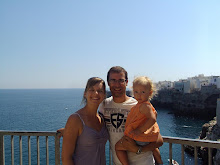
There is a question that I have found perpelxing recently, so I conducted some research so you don't have to have restless nights pondering the same thing. The question - 'How do bananas reproduce?'
I know the answer to this will not chnage my world - I just wanted to know.
Anyway, my study has led me into a complex and sometimes contradictory web of half answers. I will attempt to give hyou the best explanation about our friend the banana.
There are close to 1,000 species of banana today. Most of them are inedible - they carry hard pea-sized seeds, and have only a small amount of bad-tasting flesh. Botanists think that 1000's of years ago, probably in South-East Asia, a random mutation produced a sterile banana with no seeds and lots of flesh that could be eaten uncooked. The internal dark lines and spots inside today's banana are the vestigial remnant of these seeds.
But the edible farmed banana has no seeds. So how do we get new bananas? They are grown from the cuttings of an existing banana plant. New banana "trees" are "born" in a new location when the shoots of cuttings are planted in the ground, and take root successfully.
Bananas are definitely a fruit, even though the fruit is sterile and has no seeds. And the banana does not grow on a tree. It grows on a plant. But it's not a tree, because it's made from leaves, not true woody tissue. So our poor banana is a sterile and mutant fruit that has not had sex for 1000's of years.
Check out Great Moments in Science for more info.

